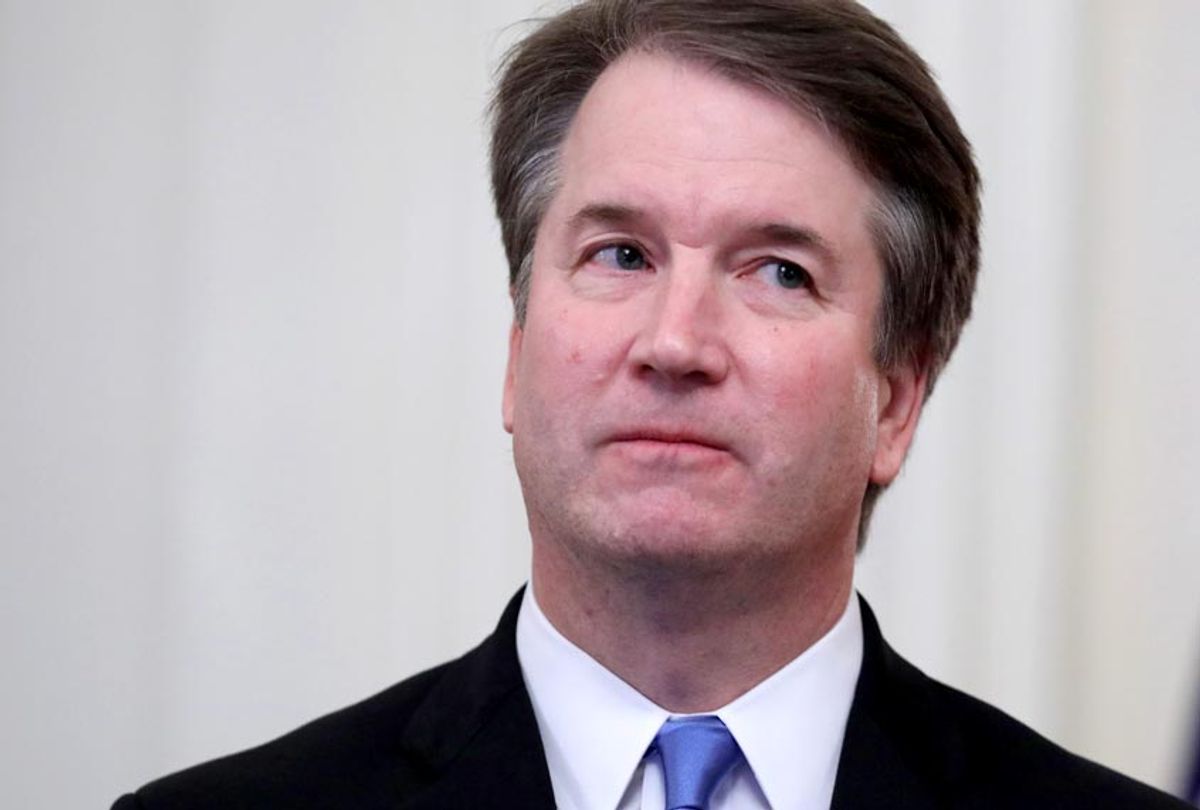Supreme Court Chief Justice John Roberts and Justice Brett Kavanaugh signaled they're likely to uphold the Affordable Care Act after appearing to reject a Republican argument that the entire law must be struck down after Congress zeroed out the individual mandate.
Roberts and the high court have already twice upheld the healthcare law, including when the chief justice joined his liberal colleagues in declaring the individual mandate constitutional under Congress' tax powers in 2012. Republicans in Congress reduced the individual mandate to $0 in 2017, prompting a group of Republican attorneys general to file a lawsuit alleging that the change had invalidated the entire law.
While it's not clear whether the Supreme Court would strike down the individual mandate, both Roberts and Kavanaugh signaled that they would not strike down the rest of the law.
Kavanaugh told attorney Donald Verrilli, who is defending the law on behalf of the House of Representatives, that he "tend[s] to agree" that the mandate could simply be removed while allowing the rest of the law to stand, Bloomberg Law reported.
"It does seem fairly clear that the proper remedy would be to sever the mandate provision and leave the rest of the law in place," Kavanaugh said.
Roberts, for his part, made a similar argument.
"I think it's hard for you to argue that Congress intended the entire act to fall if the mandate was struck down when the same Congress that lowered the penalty to zero did not even try to repeal the rest of the act," he told an attorney representing Texas. "I think, frankly, that they wanted the court to do that, but that's not our job."
While the individual mandate imposed a sliding tax on individuals without health coverage, the rest of the law expanded health care to tens of millions of people, guaranteed coverage for those living with pre-existing conditions and allowed children to stay on their parents' health plan until 26, among other provisions.
After the Supreme Court upheld the Affordable Care Act in 2012, it subsequently ruled in 2015 that the law's health subsidies must be available nationwide — not only in states which had created individual exchanges.
Paul Clement, the former George W. Bush administration lawyer who led the 2012 challenge, acknowledged in an interview with NPR that the new challenge "doesn't have any teeth."
Since the previous challenges, Kavanaugh and two additional Trump appointees — Justices Neil Gorsuch and Amy Coney Barrett, who criticized the 2012 and 2015 decisions — have since joined the court. And unlike the Obama administration, Trump's Department of Justice aligned with the Republican attorneys general to back the law's repeal.
A district judge in Texas sided with Republicans to rule that the entire law should be invalid. An appellate court later agreed that the individual mandate was unconstitutional after it was zeroed out. But it declined to rule on whether the rest of the law should stand, sending the case back to the Texas judge to reconsider.
The House of Representatives and multiple Democratic attorneys general intervened in the case, asking the Supreme Court to consider whether the mandate was constitutional and whether it was severable from the rest of the law. The court must also weigh if the Republican attorneys general have standing to bring the case in the first place.
Roberts questioned whether the court should let a plaintiff who was "not injured" by a provision to "roam around through those thousands of pages" of the Affordable Care Act and "pick out whichever ones" they want to sue over.
The justices' comments at the hearing suggested that the Affordable Care Act was "safe," Supreme Court experts predicted.
"Worst-case scenario is that [the court] invalidates the 'individual mandate' while leaving the rest of the law in place — but even that is hardly a given," Steve Vladeck, a federal court expert at the University of Texas at Austin, wrote. "Also possible that a majority holds that the plaintiffs lack standing — avoiding the merits entirely."
Reporters who cover the court agreed that Tuesday's comments were the most straightforward signal yet that the law was likely to survive its third challenge.
Slate's Mark Joseph Stern predicted that the court's six conservative justices would find the individual mandate unconstitutional, but a majority "will just sever the individual mandate from the rest of the ACA, which will have no impact on anyone."
Vox's Ian Millhiser agreed that the majority was likely to uphold the law, but cautioned that it should not be "falsely read a sign that maybe SCOTUS isn't so conservative."
"I'm fairly confident that there are at least five votes to save the law," he wrote. "But in a sensible court, the only question in this case is whether the plaintiffs' lawyers should be sanctioned for filing frivolous litigation."



Shares